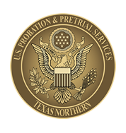Children's healthy development depends on safe and positive experiences when they are young. There are several child care and assistance options available to families:
- Childcare.gov can help you locate safe and affordable child care options near you.
- Head Start is a federal program that helps children ages birth to five years old from low income families prepare for school. In addition to education, the program provides health, nutrition, and social services depending on your family's needs.
- The Temporary Assistance for Needy Families (TANF) program assists families with children whose parents or responsible caregivers cannot provide for the family's basic needs. To apply for the program, contact your state's TANF office. Learn more about your child care options and how to choose what is best for your family.
- To find what child care operations in your area accept CCMS, visit the Texas Department of Family and Protective Services Child Care Search web site and click the box marked "Accepts Child-Care Subsidies."
- Additionally, here's a great websource for several FREE on-line infant/toddler childcare training courses for parents provided by Texas A&M University in cooperation with the Texas Department of Family and Protective Services.
- Kids.gov is a clearinghouse of information and resources for kids and adults on helping children with many items of learning and play.
Learn more about your child care options and how to choose what is best for your family.
In Texas, Child care is a support service of the Texas Workforce Commission for parents who work, attend school, or participate in job training. Those eligible for child care assistance include children under the age of 13:
- whose parents are receiving or transitioning off public assistance;
- who are receiving or needing protective services;
- or whose families are low-income.
Local Workforce Development Boards (Boards) administer child care services (CCMS) through the Workforce Solutions offices. Eligibility requirements may vary by Board. For example, Boards may:
- establish an income eligibility limit that best meets local needs, as long as it does not exceed 85 percent of the State Median Income for a family of the same size;
- provide care for children with disabilities up to the age of 19;
- determine the length of time a parent may be in education activities and receive child care services;
- establish the parent’s share of cost;
- establish the provider’s maximum reimbursement rate;
- and establish attendance policies.
Locate the Workforce Solutions office nearest you or more information about the eligibility requirements for subsidized child care.
Parents have the right to choose the type of child care that best suits their needs and to be informed of all child care options available, including:
- licensed child care centers;
- licensed and registered family homes;
- and relative care.
At 2-1-1 Texas, parents have a single point of access to search for either private or public-assisted care and for educational services for children.
